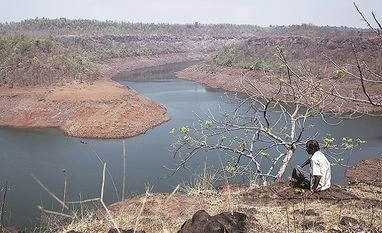The country's farm sector has the wherewithal to sustain the vagaries of climate change and increase farm production, if water conservation is taken seriously, Food and Agriculture Organization (FAO) India representative Shyam Khadka said on Friday.
“The good news for India is that it has well-developed agriculture systems. Besides, it has several agricultural universities and even private parties are entering farm research. This has produced good results since the 1960s taking food production up five times now,” Khadka told a CII conference in Mumbai.
He further said, “the country's agriculture has the wherewithal to overcome the problems of climate change and take the path of sustainable and climate-smart farming by using mitigation tools, adapting technology and new crops.” Admitting that numerous agro-climatic conditions pose challenges to its manoeuvrability in the wake of climate change, Khadka said the country has already identified the direction it has to take in terms of crop shifting.
Pointing out that water-intensive crops like sugarcane cultivation is not suitable for a water-starved Maharashtra, he said such crops should ideally move to the Gangetic states like Bihar and Brahmaputra-irrigated Assam.
“Under the ‘Go East’ policy of government, the focus will be on Bihar, Uttar Pradesh, Chhattisgarh, Assam and Odisha. It is just that it has to be implemented on the ground,” he said.
Highlighting worsening water scarcity in recent years, he said Punjab is guzzling 6 billion cubic meters of water annually, taking the ground water levels from 125 ft to over 400 ft now. Centrifugal pumps are obsolete today and only submersible pumps can come to the rescue.
The world population will rise to 9 billion by 2050, from 7 billion now. This will double the food supply needs, Tata Sons sustainability group head Shankar Venkateswaran told the conference. He also said the world has to double food production by 2050 to feed teeming billions.
)